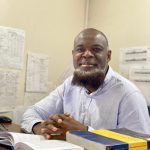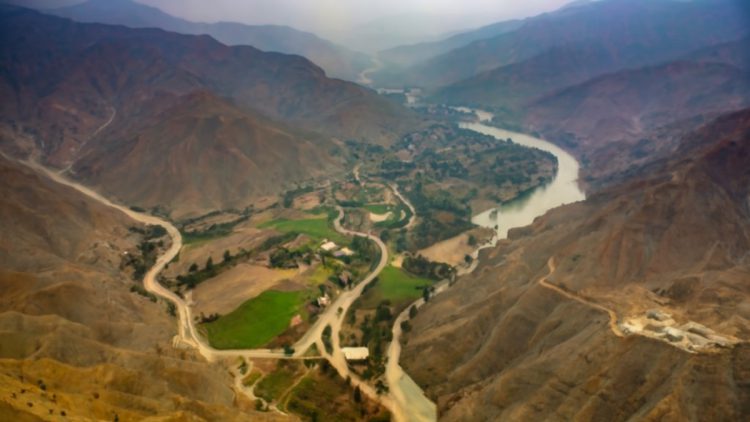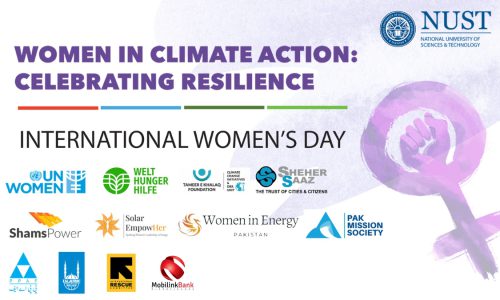As the title suggests, our study documents the impact of exposure and interactions on the post-conflict development of North Waziristan. It avoids the reductionist approach of subjecting the discourse around Internal Displaced Persons (IDPs) to mere marginalized bodies. Instead, our study helps us understand how, through the ‘networks of interactions’ and exposure, returnees can meaningfully change the socio-political and economic landscape of their traditional home. While the debate in the paper is not confined to displacement, the larger picture it discusses is the post-conflict environment. Thus, through exposure, our paper also identifies and addresses the exposure caused by the military intervention in the region, namely, the attendant socio-political and economic transformations. Therefore, we argue that the post-conflict development of North Waziristan was influenced by two forms of exposure: that caused from within by military intervention and exposure from outside during displacement through the ‘networks of interactions.
The findings further suggest that these interactions and networks are transcending and redefining the margins (viz. material space), and the social space of North Waziristan since the natives have expressed growing inclinations towards movement in mainstream Pakistan. The aforementioned arguments establish new perspectives – admittedly controversial – where prolonged conflict-induced displacement has attributed to unintended ‘development’ for spatially excluded communities. Essentially, our article argues that the subject of displacement and post-conflict societies deserves further scrutiny beyond resettlement and return.
Our article is premised on the conceptual underpinnings of interactionism and the sociology of space to understand the outcomes of conflict-induced displacement in the context of North Waziristan in Pakistan. More modestly, this contribution brings in the disciplined use of abstract reasoning concerning symbolic interactionism (Blumer 1969; Fisher and Strauss 1978; Stryker 2008) to understand the consequences of displacement on spatially excluded (or bounded) communities, which is further informed by conceptual and implementable analytics of socio-spatiality (Lefebvre 1974; Soja 1985; Harvey 1990; Merrifield 1993). Using these sociological concepts as lens, this article explores the case of the returned and resettled natives and communities of North Waziristan Tribal District (NWTD) which are undergoing post-conflict reconstruction and development. In that, the former Agency is experiencing fundamental changes regarding its administrative and territorial control as the erstwhile Federally Administered Tribal Areas (FATA) have been merged with the Khyber Pakhtunkhwa (KP) province after the counter-terrorism operation(s). Therefore, in view of the impact of these processes, the case of internal displacement concerning post-conflict NWTD requires scholarly attention and analysis.
Diverging from conventional approaches and arguments, our paper used the case of North Waziristan to provide an assessment of the ongoing changes in the post-conflict returned and resettled communities. Admittedly, in this perspective, interactions become significant because they transform societies and (re)produce spaces, but there is the probability that material transformations in the form of post-conflict physical reconstruction projects overshadow the aforesaid ongoing (social) transitions within a society. Our paper applied this notion to the FATA-KP merger and the post-conflict reconstruction and development in North Waziristan. In elucidating these potential socio-spatial transformations, while the process of post-conflict reordering continued, certain methodological modifications were required to adapt to the context specificity and sensitivity. This employed the use of ‘respondents pyramiding’ (von Hippel, Franke and Prugal 2009) while disassociating from conventional methods (such as snowball or purposive sampling) to identify and engage displaced natives of North Waziristan (retuned, resettled, and mobility networks). Moreover, as mentioned earlier, in this case we argue that displacement is a social condition, and especially, it should be studied beyond the aspect of mobility. In pursuing this assertion, our study focused on the journey of displacement and its outcomes for the communities. Meaning, our work established that the natives of North Waziristan in Bannu, for instance, can represent the ones who have permanently resettled there after displacement or have found another home aside from their dwelling in North Waziristan and have formed mobility networks or ‘networks of interaction’ as a result of (conflict-induced) displacement. This is the core finding of the research. The paper is published and cited as (Bakare, Najimdeen, Khan Faryal, and Syed Ali Akash, “Beyond return and resettlement: The impact of exposure and interactions on the post-conflict development of North Waziristan,” Migration Studies, 2022. https://doi.org/10.1093/migration/mnac017.
The project team is immensely grateful for the platform provided to us by NUST. Thanks to NUST’s reputation, we were able to apply for a research grant funded by the Hanns Seidel Foundation Islamabad. This project enabled the NUST team to gain access to the erstwhile FATA region, where we conducted both intensive and extensive fieldwork with the cooperation of the Pakistan Army.
Authors’ details
- Najimdeen Bakare {Department of Peace and Conflict Studies, Centre for International Peace & Stability (CIPS), National University of Sciences & Technology (NUST), H-12, 44000 Islamabad, Pakistan: Email: [email protected]}
{https://scholar.google.com/citations?user=ToilCR4AAAAJ&hl=en&oi=sra} - Faryal Khan {A graduate of CIPS, currently working as a researcher: Email: [email protected]}
- Syed Ali Akash {A graduate of CIPS, currently pursuing a doctorate degree at the University of Melbourne Australia: Email: [email protected]} {https://scholar.google.com/citations?user=IZhlUFMAAAAJ&hl=en&oi=sra}

![]()





